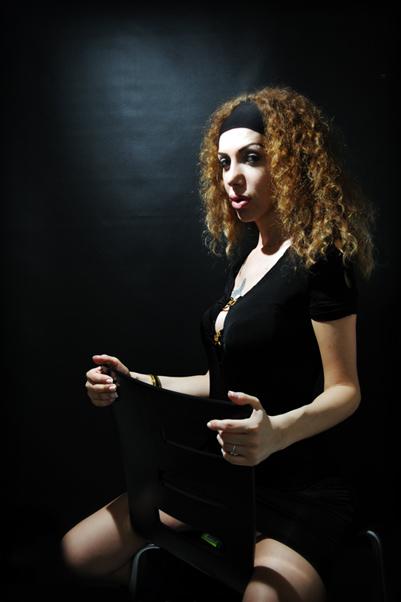Celebrity belly dancer Antonella will be swinging her hips into Toronto this June. Billed as the only out trans performer of the Arabic world, she spent years as a male with an intersexed body in Lebanon before finally discovering her feminine identity at 25.
She is reportedly the first person for whom the government of Lebanon has paid for sex reassignment surgery. But policy makers aren’t the only ones who have influenced Antonella’s life. After facing stigma in her community, she has learned how to rely on her own strength.
Before Antonella learned that she was intersexed, she says she “was like a pussycat.” She would come straight home from school to help her mother with chores or go to her room to belly dance.
“I was dancing in the house …[where] nobody could see me,” she says.
Born with Klinefelter syndrome, Antonella has two X chromosomes and one Y chromosome. She was born with an intersexed body that presented as male.
“My testicles, it’s like the eggs of the birds, you know, it’s too small,” she explains. “Before 25 I didn’t know anything about sexual life.”
Antonella sought medical advice. One doctor suggested she might be a woman.
“I told him I am a man,” she explained, in an interview with The Lebanon. “But… the war between Toni [her birth name] and the sleeping woman inside him was declared.”
Antonella decided to have sex-reassignment surgery, which would allow her to present as female, but the costs were huge. Luckily, Lebanon’s health ministry agreed to pay for the entire operation. That was in 1997.
“I didn’t pay one dollar for my surgery,” she says.
But the Lebanese government’s involvement also meant national media attention.
“It was like a tsunami in all of Lebanon,” she says.
The attention made it difficult for her to live stealthily. The hardest part, she says, has been finding work. She was a nurse, but after she was outed as trans, she was denied hospital work.
“They tell me that I’m a whore,” she explains. “Because I’m a transsexual, it means I’m only for sex.”
The pragmatic Antonella returned to dancing, in which she had found escape as a youth, and turned it into a career opportunity.
“When I dance it’s very horny, and all the people, they like to look at me and to come and see my show,” she says.
Still, Antonella says she just wants respect.
“I love how I’m dancing, but I hate people when they look at me in that way. Like I’m a whore,” she says. “They didn’t look [at me] like I’m a good dancer… the men, they love me. But all the time they try to start talking about sex.”
She says she’s happy, but she has also struggled with a lack of love and support.
“I tried to kill myself more than 10 times,” she says.
A year after her operation, her boyfriend left her, Antonella says, because of his jealousy about her professional life.
“He always tried to beat me because I’m going to go to clubs and make my show,” she says. “I have to live, I have to eat, you know?”
When he left, she says, she attempted suicide. And she says she is still seeking affection and independence.
“I think about two things: I want to be in love with someone, and I want to work. I don’t want a lot of money… I’m a very simple person.”
While it’s technically illegal to have same-sex sex in Lebanon, Beirut has a thriving queer community. Antonella, who also identifies as bisexual, says her sexual orientation never made her the target of discrimination the way her transsexuality did.
“To be a lesbian, it’s very easy,” she says.
She says she would like people to “look at me like any woman in life. I have to work, I have to take care about my mom… Every Sunday, I go to church.”
She says prayer keeps her positive.
“I’m very strong,” she says. “I always say I’m transsexual every place I go,” she says. “You have to believe in people… you have human rights.”


 Why you can trust Xtra
Why you can trust Xtra


